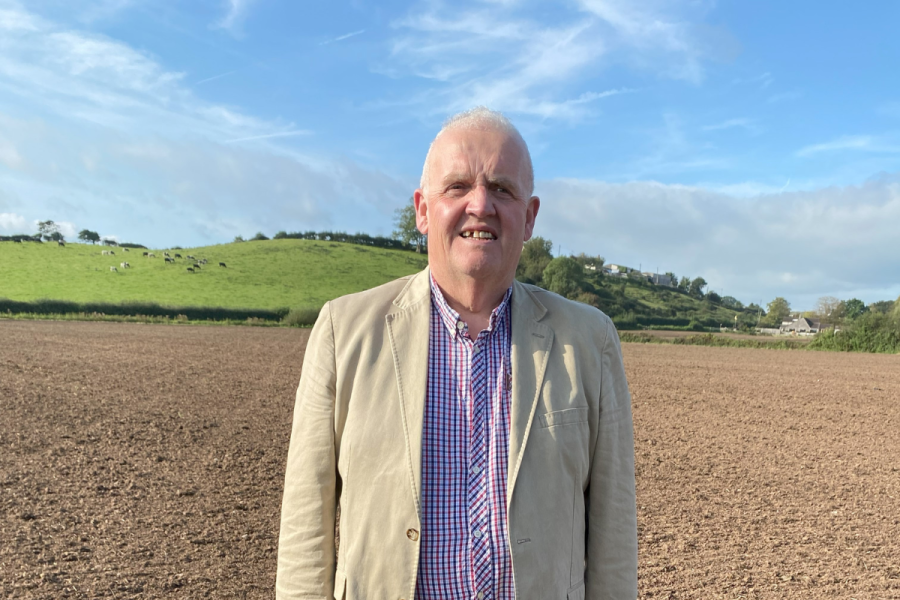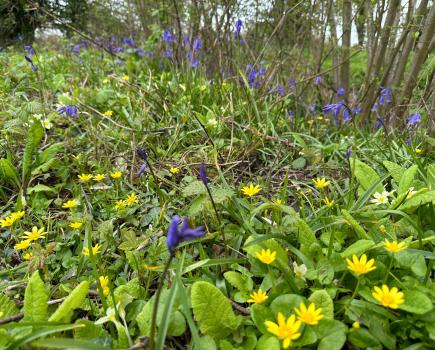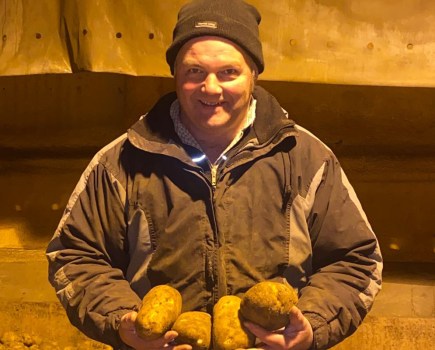By John Swire
Well, this is not where I expected to find myself as we approach the end of 2023, as editor of CPM. Life over the last few weeks has certainly been a little hectic to say the least and finally here is the first edition of the magazine under my editorship. First of all, allow me to indulge you with a brief background. I left school in 1975 with the intention of working on the family mixed dairy farm for the rest of my life. The farm was just over 300 acres which at the time supported about 100 cows and a reasonable arable area. It was very much of its time; supported by various grant schemes to update the milking parlour and building new cubicle buildings to replace the old run down wooden cow kennels. The arable side was very basic with my father insisting that sowing barley by broadcasting it with a Taskers Paterson wheel driven fertiliser spreader was the most efficient and economic form of crop establishment. I suppose the whole system was very much of its day, certainly in North Shropshire. The major problem was that it was a tenanted farm and so there was little room or desire for investment.
After 15 years of getting up at 5 am to milk cows, I reached a decision. After an amicable agreement to leave the business, I found myself as a mature student at university. Following this, I had no intention of pursuing the agricultural route until a chance encounter in a pub led me to be working for one of the leading agricultural PR agencies at the time. This ultimately led me in a roundabout sort of way, via various other agencies and magazines to where I am now: an editor of a leading arable farming magazine and part time assistant to a Methodist minister/wife on the Somerset Levels. To say it has been an interesting and variable life would be an understatement, but here we are ready to start the next stage. Anyway, enough about me, although I may bore you with more stories of arable production in mid-70s North Shropshire in the future.
In more pressing matters, the Migration Advisory Committee (MOC) has published its review into the Shortage Operation List (SOL) which lists eight occupations which it recommends should be added to the list. Unfortunately, the recommendations do not include any occupations within the agriculture industry. In response the NFU has submitted its own report which lists eight occupations directly connected with agriculture, of which four are of particular interest to readers of CPM: machine harvest operator (field)/harvest operator, horticulture potato supervisor with language skills, general farm worker and machine operator (packhouse).
The NFU report goes on to say that the roles they have identified are in shortage and are vital to the maintenance of production in the UK and growth opportunities for the wider agricultural and horticultural sectors. Without an immigration solution labour will continue to be a driving factor in the reduction of UK food and a rise in imports from countries that often have lower worker welfare and poorer environmental standards.
NFU deputy president Tom Bradshaw says: “It is disappointing that the evident shortages impacting the agriculture industry have not been recognised. We know farmers are having difficulty recruiting long term for vital roles in their farm businesses.”
This is a real serious concern for many sectors of the industry and all of us must take every chance we can to persuade and lobby those in power as well as opinion formers, that the industry must be treated as a special case to ensure the continued production of high quality produce within the country.
This article was taken from the latest issue of CPM. For more articles like this, subscribe here.
Sign up for Crop Production Magazine’s FREE e-newsletter here.




